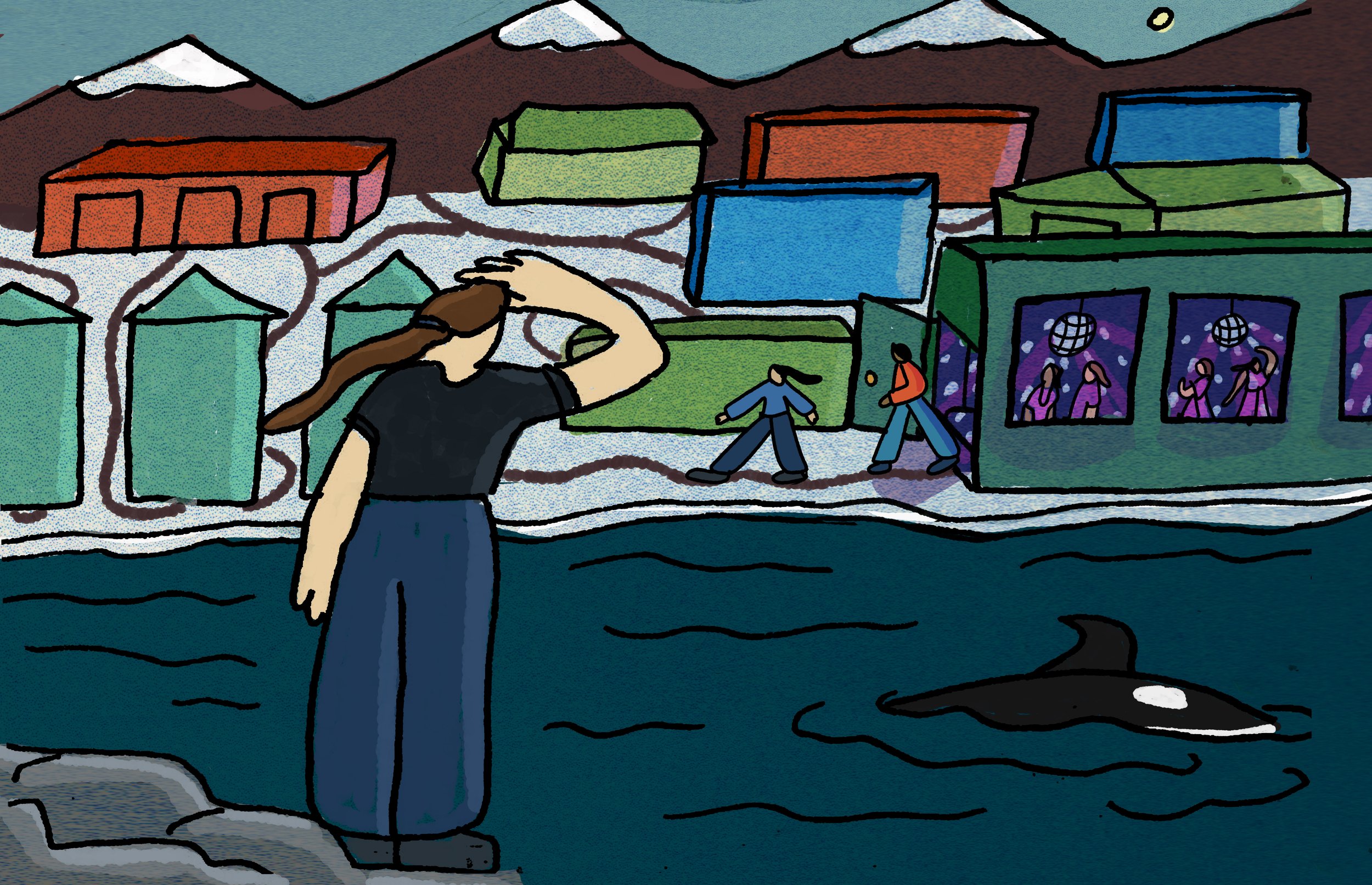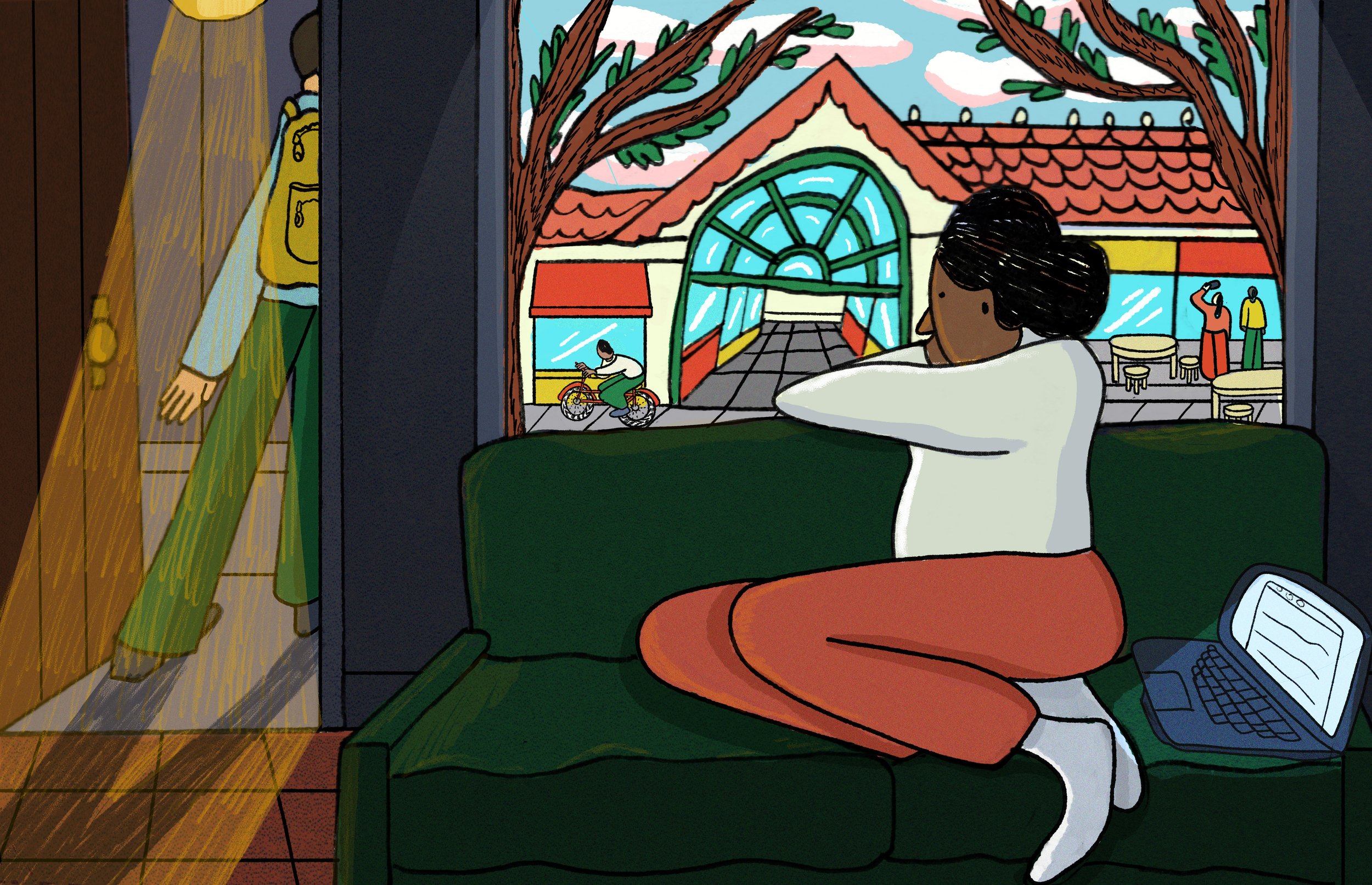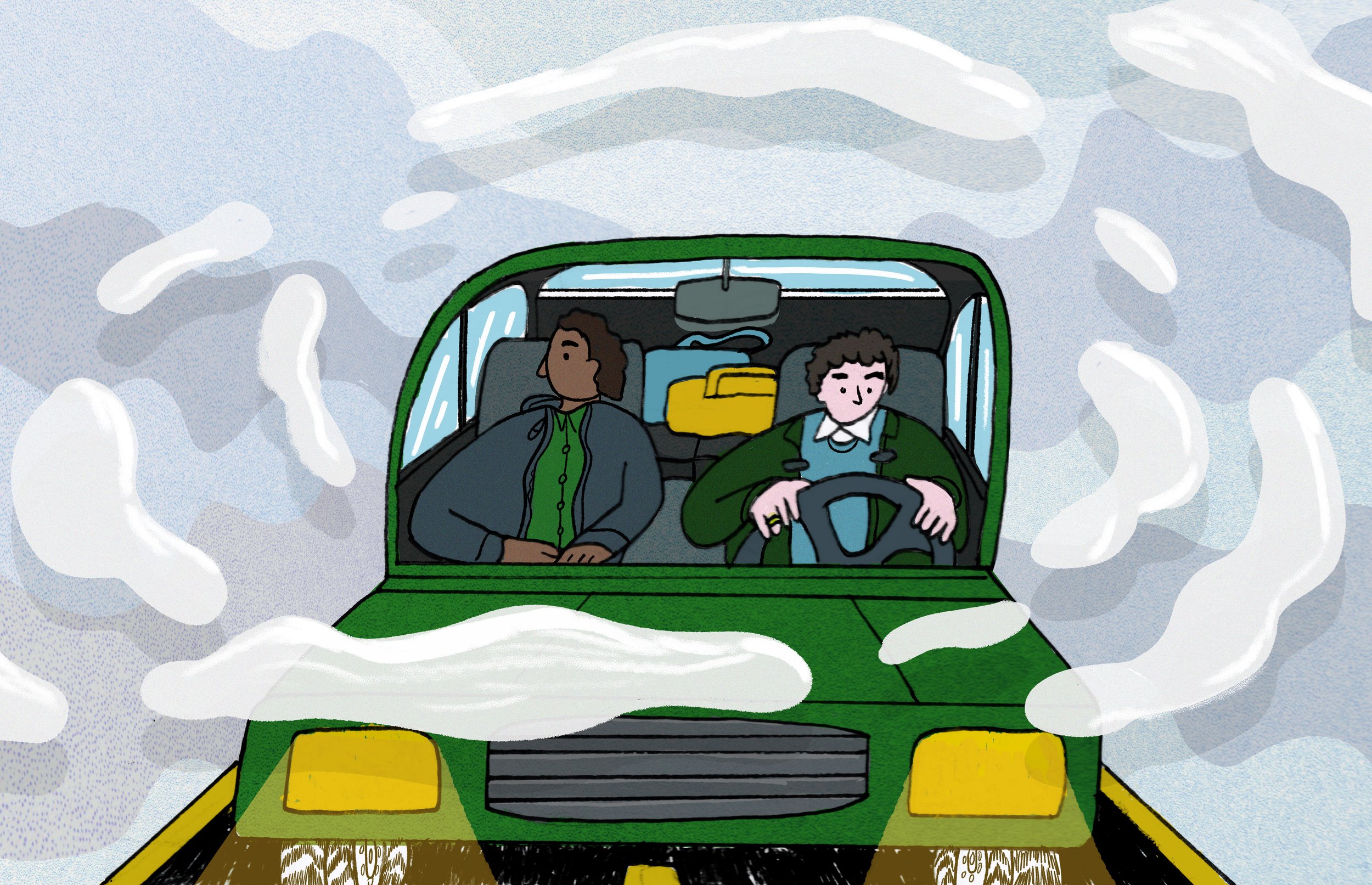2:30 a.m. in McMurdo Station

2:30 a.m. in McMurdo Station is when your body can’t dance anymore. A friend calls to you from across the writhing crowd, his voice echolocating through pumping limbs. You want to stay but your back is stiff and your joints ache. This is your third deployment to Antarctica, and for months you’ve been working sixty hours a week hunched over a computer manifesting flights. You’re exhausted, not solely from the job. You’re the third generation in your family to work in Antarctica, and sometimes you wonder if you chose this or if it chose you. You’re tempted to keep returning no matter how it wears on your body, on your soul.
You don’t know it yet, but this is one of your final nights in Antarctica, the last time you’ll dance in a carpenters’ shop, the floor sticky with spilled champagne and sawdust, sheets strewn over table saws and drill presses creating a ghostly membrane between labor and play.
Leaving a party at the bottom of the world is a rebirth, a startling emergence from humid-heavy darkness into piercing light and aching cold. The sun is always there, circling overhead, going months without setting. Sweat evaporates in snakes of steam, and black volcanic dust crunches underfoot as you march toward the sea. It’s been frozen all season, ice thick enough to drive across, but a storm churned through in the past few days and left behind open water.
Your friend finds you, his mittened hand offering a triangle of tinfoil, and your stomach growls on command. Together, you huddle behind the chapel to eat. People cackle nearby as they stream into the night at this late or early hour. So many of them, like your friend, have chosen to make a life of this place, as you imagined you would—but your perspective is shifting.
Your friend thinks you should stay, like himself, but both age and the harsh climate have weathered him. You’re starting to sense a melancholy in his untethered existence, in the way his home base is a storage unit and his family is whoever returns next year. You thought making a life in Antarctica was freedom, but maybe it’s time to leave, to run toward someone again. There’s a person you can imagine unpacking suitcases with, grocery shopping, even parenting alongside. You know it’s real, and you’re scared that it feels like surrender. Taking that path means staying in one place with one person, and you’re not convinced it will be enough.
Grunting through his full mouth, your friend points, and you look just in time to catch the dorsal fin of an orca as it slices out of sight. Then another, and another, like black blades in the water, punctuated by bursts of vapor. It’s a small pod, a family, and haven’t they chosen each other, found home in one another, out of every other option in the sea? A whale’s exhale becomes your inhale. In that strange in-between hour on the coldest continent, clarity arrives on the cloud of a whale’s breath: You know it’s time to go.
About the Author
Elizabeth Endicott is an award-winning writer and multi-disciplinary artist living in Denver. Her work has been featured in The New York Times, LA Times, The Guardian, Elle, Scientific American, and many more.
Illustration by Jane Demarest.
Edited by Tusshara Nalakumar Srilatha.











